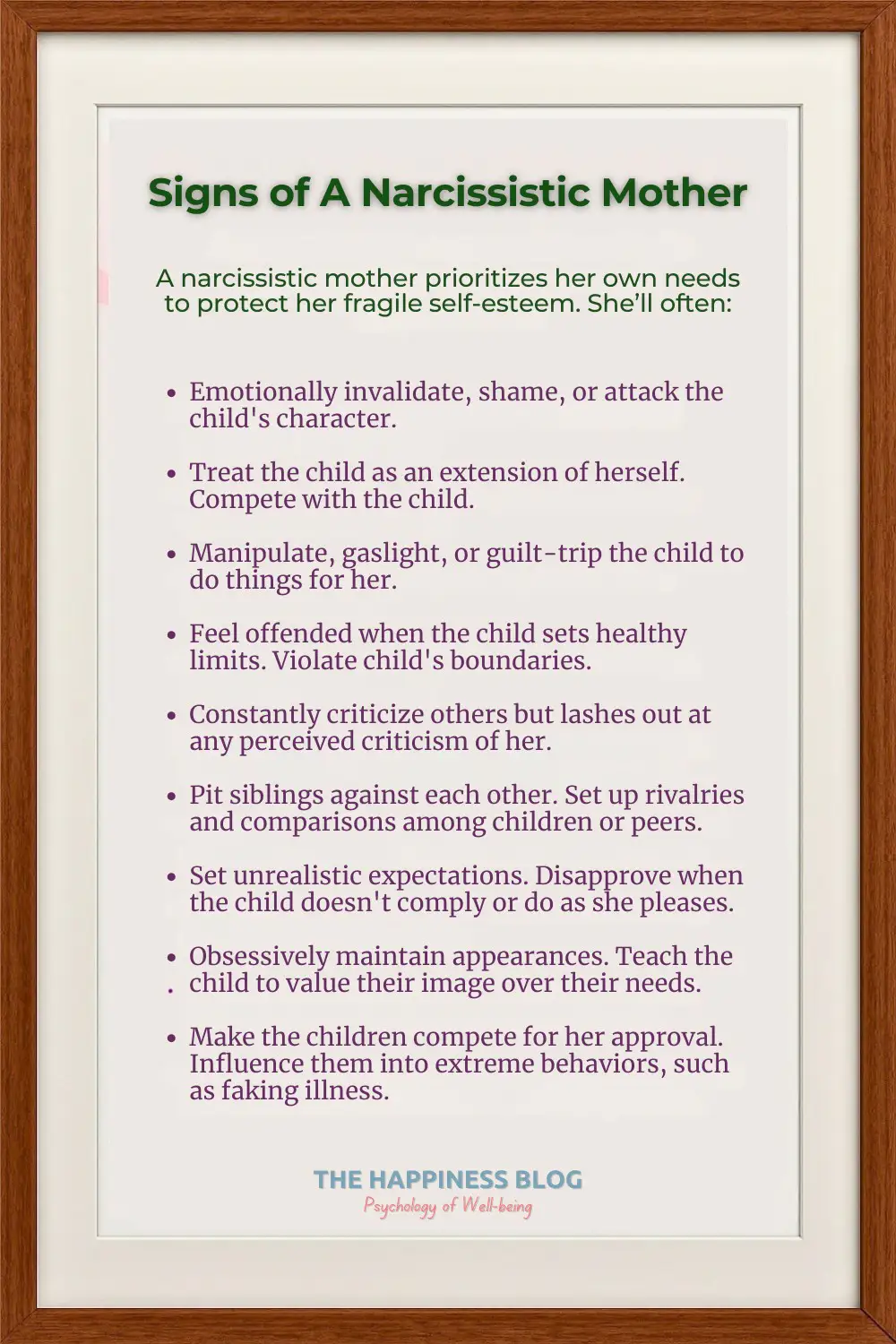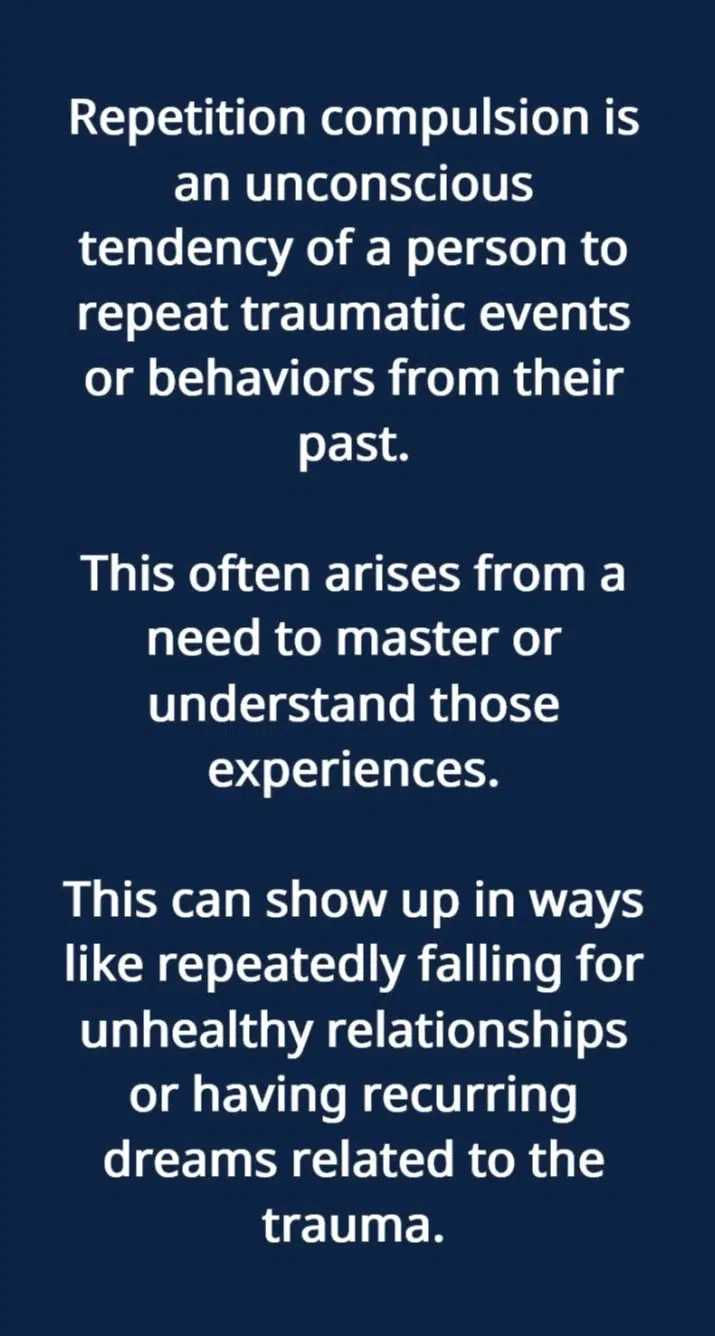Today's Saturday • 8 mins read
— By Dr. Sandip Roy.
Beneath her surface-level love, a covert narcissist mother can dig craters into her child’s psyche that might take a lifetime to fill.
Children raised by a covert narcissist mom often feel like they should subtly sideline themselves or make themselves emotionally unseen. Their mother’s voice in their head may be dictating those self-negating behaviors.
Covert narcissistic parenting involves many little actions that can act like a thousand paper cuts. Though not obvious, they deeply affect a child’s emotional growth. These scars often last into later life.
11 Ways Covert Narcissist Mothers Scar Their Children
Do you identify with any of these invisible emotional wounds as given by a covert narcissist mom?
1. Negative Core Beliefs
This child, constantly treated with emotional manipulations, internalizes a highly distorted blueprint for relationships, self-worth, and emotional reality.
The mother’s denied emotional unavailability, conditional approval, and constant self-focus become the child’s main way to learn about love and connection.
- Echoism or Narcissistic Fleas: While some children might develop “narcissistic fleas” (manipulative or self-centered traits as coping mechanisms), many others develop echoism. Coined by Dr. Craig Malkin, echoists are those who, in reaction to a narcissistic parent, fear being a burden, rarely express their own needs, and exist primarily to “echo” or cater to the needs of others. They are terrified of appearing narcissistic themselves.
- Internalized Unworthiness and Conditional Love: The child absorbs the implicit message that their inherent worth is insufficient. Love, attention, and approval are not freely given but are commodities to be earned, usually by fulfilling the mother’s unspoken emotional needs or by reflecting her desired image. They internalize beliefs like: “I am only lovable if I am useful/perfect/quiet/compliant,” or “My needs are a burden.” Love becomes a transactional experience, to be proven by “doing” for others, rather than a state of being.
- Parentification and Pathological Responsibility: The child often becomes parentified. That is, they feel implicitly responsible for the mother’s emotional stability and happiness. This sense of outsized responsibility is carried into later life, when they feel compelled to manage the emotions and needs of partners, their children, and even friends or colleagues.
- Self-Worth Dependent on External Validation: Because their authentic self was rarely mirrored or validated, their sense of self-worth gets tied to external validation. They struggle to know their own value from within, constantly seeking cues from others to feel “okay” or “good enough.”

“Narcissistic mothers make sure they are seen as self-sacrificing victims despite all their abuse on their children.”
2. Conditional Love & Resultant Hypervigilance
The love of a covert narcissist mother is a complex web of conditions, many of them unspoken. Yet firmly enforced through sighs, martyrdom, guilt-tripping, or the subtle withdrawal of warmth.
This is “love with strings attached.” The child understands that their survival depends on reading and meeting their mother’s ever-shifting, often contradictory, needs.
- Limited Emotional Development: Their own emotional development can be stunted. If only certain emotions were “allowed” (e.g., those that didn’t upset the mother or that provided her narcissistic supply), they might struggle to recognize, understand, or express the full spectrum of their own feelings.
- Learned Self-Neglect: The child learns that prioritizing their needs, feelings, or desires is selfish or unacceptable. Doing so will lead to parental disapproval or emotional abandonment. So they shrink their authentic self in favor of catering to their mother’s emotional needs. In later life, it may show up as a genuine inability to identify, honor, or care for their own needs. Self-love and self-care feel selfish, even dangerous.
- Anxiety and Emotional Hypervigilance: The unpredictability and conditional nature of the mother’s affection and approval build a state of chronic anxiety. The child becomes hypervigilant, constantly scanning their environment (especially the mother’s moods and subtle cues) to anticipate needs and avert disapproval. This “walking on eggshells” becomes a default mode in all relationships. They get masters at reading others, but are often completely disconnected from their own internal state.
- Fear of Unworthiness: The core message they grew up with was: “You are not inherently worthy of love or affection. Your worth is based on how useful you are to me.” This creates a profound sense of being deeply flawed or insufficient if they fail to meet the unspoken demands.
3. People-Pleasing Tendencies & Boundary Deficits
These children often develop into compulsive people-pleasers, often as an ingrained survival strategy. The mother’s veiled but persistent demands for attention, admiration, and emotional servitude train the child that their safety and acceptance are dependent upon anticipating and meeting others’ needs.
This translates in later life to:
- Difficulty recognizing or establishing healthy personal boundaries, which makes them vulnerable to further exploitation. This is often a manifestation of the “fawn” trauma response.
- An inability to say “no” without experiencing profound guilt or fear of rejection/retaliation.
- A chronic prioritization of others’ needs, often to the point of complete self-abnegation.
3. Emotional Burdening, Parentification, & Enmeshment
The covert narcissistic mother uses the child as an emotional dumping ground, making the relationship a form of emotional incest or enmeshment. She burdens the child with her anxieties, marital issues, and emotional needs, often giving the child:
- Sophisticated Guilt Trips: Making the child feel responsible for her unhappiness or well-being.
- Playing the Victim/Martyr: Triggering sympathy and obligating the child to provide care and reassurance.
- Demanding Constant Validation: Using the child as a mirror to affirm her goodness, rightness, or to soothe her insecurities. The child becomes an emotional crutch, robbed of their own childhood and the space to develop a separate, autonomous emotional self. Healthy boundaries feel alien and often evoke guilt.

5. Low Self-Esteem & an Internalized Critical Voice
The continuous invalidation, the absence of unconditional regard, and the pressure to meet impossible or shifting expectations create low self-esteem and a sense of inadequacy.
- Lack of Self-Validation Capacity: They are often incapable of internal self-validation, having been trained to look outside themselves for approval and for cues on how to think, feel, and act.
- The “Not Good Enough” Schema: A core belief of being fundamentally flawed or “not good enough” often pervades their psyche.
- Internalized Critic: The mother’s critical, judgmental, or disappointed voice often becomes a harsh inner critic, relentlessly undermining their confidence and achievements.
6. Codependency & Repetition Compulsion
Children of covert narcissists are at high risk for developing codependent patterns in later life. They often reenact the relational patterns they learned as children, which were centered on self-sacrifice and getting a sense of worth from being “needed” by someone emotionally immature or demanding.
- Their identity can become fused with their role as a caregiver or rescuer, perpetuating a cycle of unhealthy attachments.
- They may be drawn to narcissistic or emotionally unavailable partners, as this dynamic feels familiar (repetition compulsion).

7. Pervasive Difficulty with Trust (in Self, Others, and Life)
The manipulative, gaslighting, and emotionally inconsistent nature of the relationship with the covert narcissistic mother fundamentally erodes the child’s ability to trust.
- Distrust of Their Own Perceptions (Gaslighting Effects): Being systematically told that their reality is wrong, their feelings are invalid, or that events didn’t happen as they remember (“gaslighting”) leads to a profound distrust of their own judgment, intuition, and sanity.
- Distrust of Others: The primary attachment figure, the mother, was unreliable and often unsafe emotionally. This can generalize into a suspicion of others’ motives, an expectation of betrayal, or an inability to be vulnerable in relationships.
- Impaired Relational Security: This often contributes to insecure attachment styles (anxious, avoidant, or disorganized) and can be a core feature of Complex PTSD (C-PTSD).
8. Identity Disturbance
Growing up as an extension or an object for the mother’s needs, rather than as a distinct individual, can lead to a diffuse or confused sense of identity.
9. Chronic Shame and Guilt
These are often the bedrock emotions, as the child internalizes blame for the mother’s unhappiness or the dysfunctional family dynamics.
10. Poor Emotional Literacy
Difficulty identifying, naming, and appropriately expressing their own emotions due to a childhood where their genuine feelings were ignored, dismissed, or punished.
11. Prone to Further Abusive Relationships
The patterns learned in childhood can, unfortunately, make them more vulnerable to future relationships with manipulative or narcissistic individuals.
Final Words
So, did any of those subtle patterns resonate with you?
If they did, please realize that this isn’t about blaming your covert narcissistic mother. Instead, it’s about releasing the burden of self-blame you might have carried for these experiences.
Take this newfound awareness of those “paper cuts” as your starting point. From here, you begin the journey of healing and recovery to your best possible self.
√ Also Read: How To Heal From A Covert Narcissist Mother’s Burdens?
√ Please share this with someone.
» You deserve happiness! Choosing therapy could be your best decision.
...
• Disclosure: Buying via our links earns us a small commission.